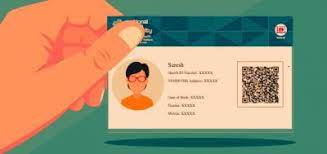Prime Minister Narendra Modi this week launched the Ayushman Bharat Digital Mission to provide people with a digital health ID, which will contain their health records.
The nationwide roll-out of the Digital Health ID card coincides with the celebration of the third anniversary of Ayushman Bharat Pradhan Mantri Jan Arogya Yojana (AB PM-JAY) by the National Health Authority (NHA).
Currently, more than one lakh unique health IDs have been created under the National Digital Health Mission (NDHM), which was initially launched on a pilot basis on August 15 in six states and union territories.
The Ayushman Bharat Digital Mission is being implemented in a pilot phase in six states and Union Territories. More than 1 lakh health IDs – a unique 14-digit health identification number- have already been created under it. PM Modi pointed out that India has nearly 130 crore Aadhaar users, 118 crore mobile subscribers, 43 crore Jan Dhan bank accounts, and such a connected infrastructure can be found nowhere else in the world.
“Ayushman Bharat Digital Mission will now help connect digital health solutions across the country. All Indians will get a digital health ID under this scheme. Every citizen’s health record will now be digitally secure,” the PM said, underlining that “digitisation will make healthcare easier”.
What is Digital Health ID Card?
Digital Health ID card will be a unique ID card like Aadhar card which will help in maintaining your health records. It will be created using your personal details. The ID will be generated using Aadhar card or mobile number of the citizen and will act as an identifier for maintaining the health record. The system will also collect some important information including demographic and location, family/relationship and contact details. Then after taking the consent of the citizen, this information will be linked to the health ID. According to the NDHM website, information called ‘Personal Health Record-System (PHR)’ enables a person to manage information about his/her health care.
How Unique Digital Health ID Card Works?
The plan includes four essential blocks – Unique Digital Health ID, Professional Registry, Health Facility Registry and Electronic Health Record. The first objective of the scheme is to create a digital environment for healthcare through these four blocks. The mission will create an ‘electronic medical record (EMR)’ which, as explained by the government, is a digital version of a patient’s chart. It contains the medical and treatment history of the patient. If you also want to make your own unique digital health card sitting at home, then it is very easy to make it.
Key things to know about –
The key components of PM-DHM include a Health ID – unique 14-digit health identification number- for every citizen that will also work as their health account. The national Health ID will be a repository of all health-related information of a person. The health ID will enable access and exchange of longitudinal health records of citizens with their consent.
This health account will contain details of every test, every disease, the doctors visited, the medicines taken and the diagnosis. This information will be very useful as it is portable and easily accessible even if the patient shifts to new place and visits a new doctor.
Health ID under NDHM is free of cost and voluntary. According to govt, analysis of health data will lead to better planning, budgeting and implementation for states and health programs, which should be a big cost optimizer.
Now it will be only a click away to avail healthcare facilities.
[Prepared by Nishant Mishra]


